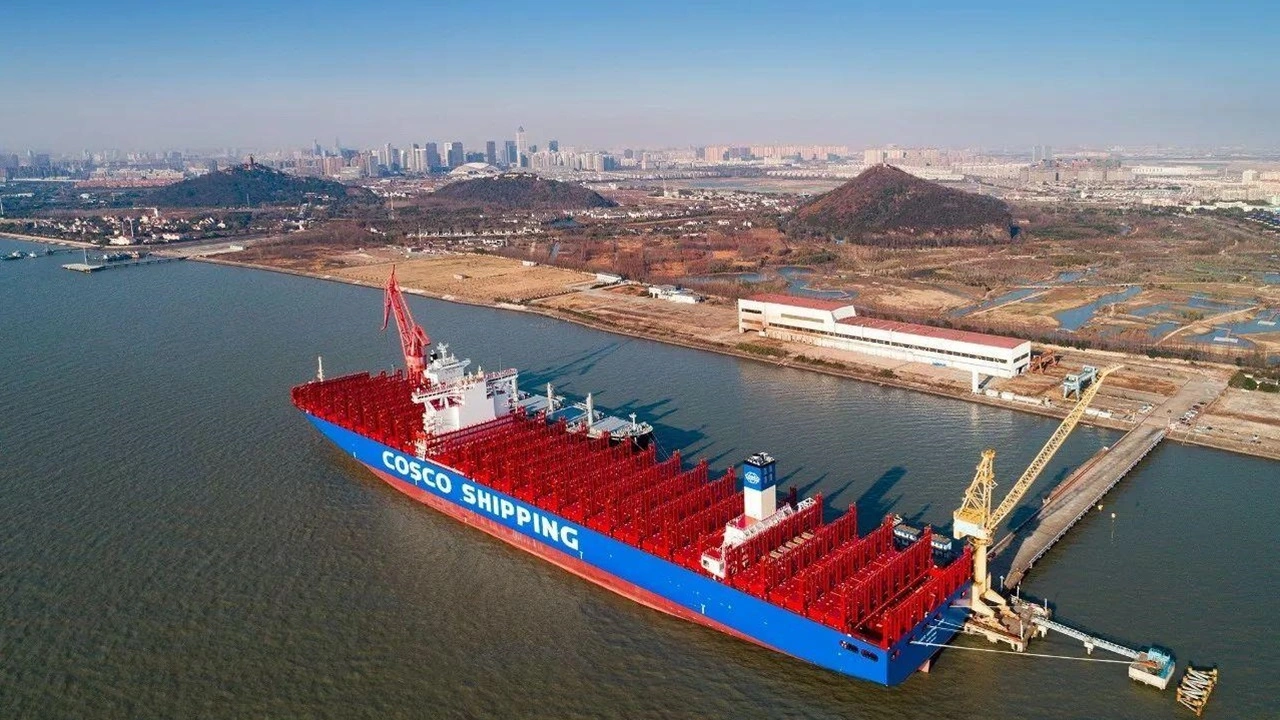
Cosco Shipping Holdings reports a 9% increase in cargo volume
3 months ago
Cosco Shipping Holdings reports a 9% increase in cargo volume

Cosco Shipping Holdings has posted robust revenue and cargo volume growth for the first three quarters of 2024. The company's container shipping business generated RMB 168.84 billion ($23.70 billion) in revenue, marking a 30.57% year-on-year increase, while shipping volumes rose by 9.07% compared to the same period in 2023.
In the terminal sector, total throughput reached 107.27 million TEUs, reflecting a 7.08% year-on-year growth. Revenues from the container terminal business climbed 6.49%, amounting to RMB 7.94 billion.
The company saw strong growth in specific cargo categories, with volumes for photovoltaics, lithium batteries, automobiles, and cross-border e-commerce up by 31%, 20%, 17%, and 60%, respectively.
The digital supply chain has emerged as a new growth driver for Cosco, with non-ocean shipping supply chain revenues reaching RMB 30.71 billion, a 19.66% increase year-on-year.
In a statement, the company noted that despite a challenging global economic and trade landscape, it has actively pushed forward the development of full-chain services, digitalization, and green initiatives, positioning itself for sustainable growth amidst external uncertainties.
As of the third quarter’s end, Cosco Shipping Holdings operated 436 shipping routes with a total capacity of 3.28 million TEUs and managed 371 berths across 39 global ports. Additionally, the company operated 589 domestic and international sea-rail trade routes.
During this period, Cosco Shipping placed orders for a number of container vessels with methanol dual-fuel engines, including twelve 24,000 TEU ships, four 16,000 TEU vessels, and twelve 14,000 TEU vessels. The company has also retrofitted four existing vessels with methanol dual-fuel engines to meet the future demands of the green shipping corridor.
Source: Seatrade Maritime